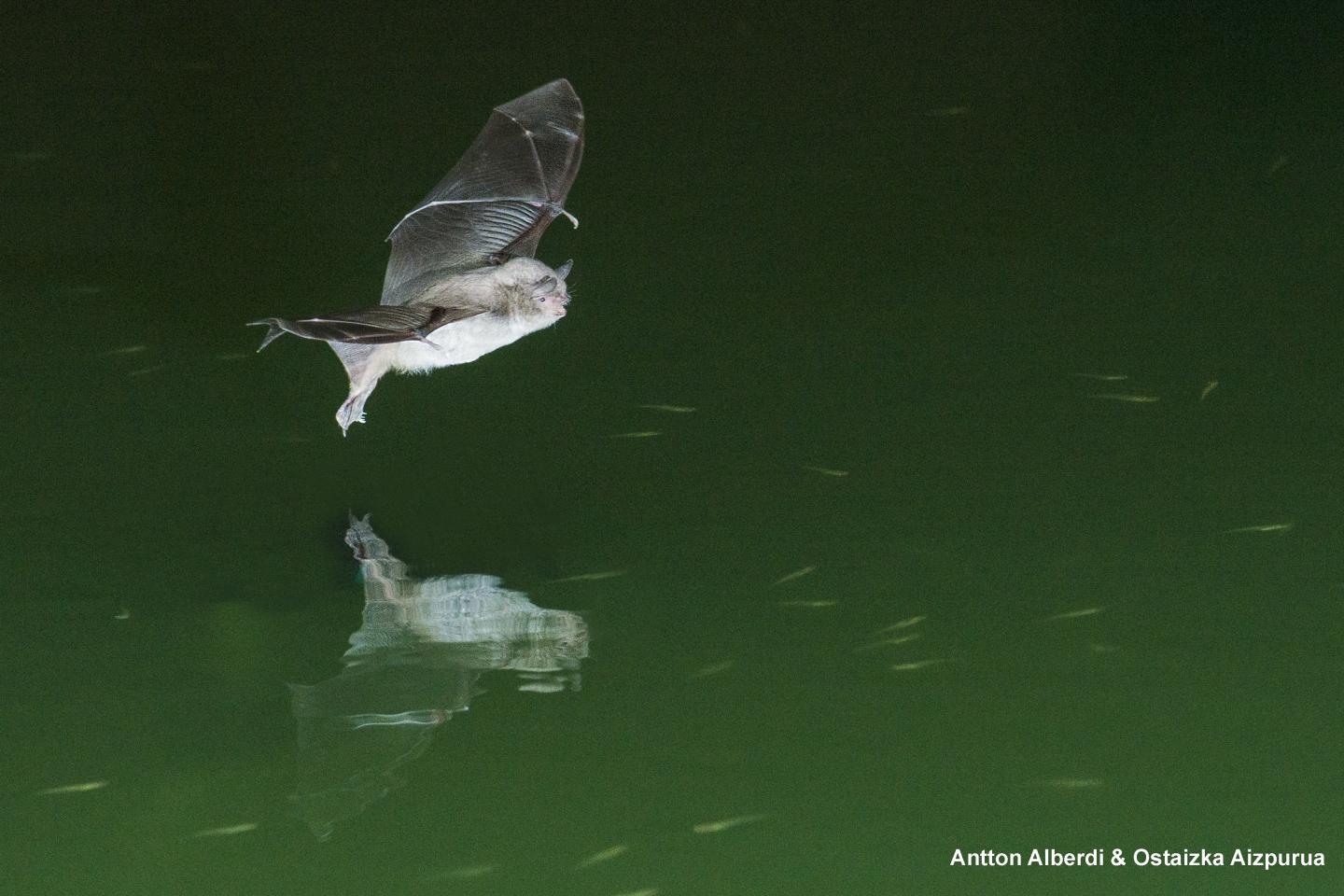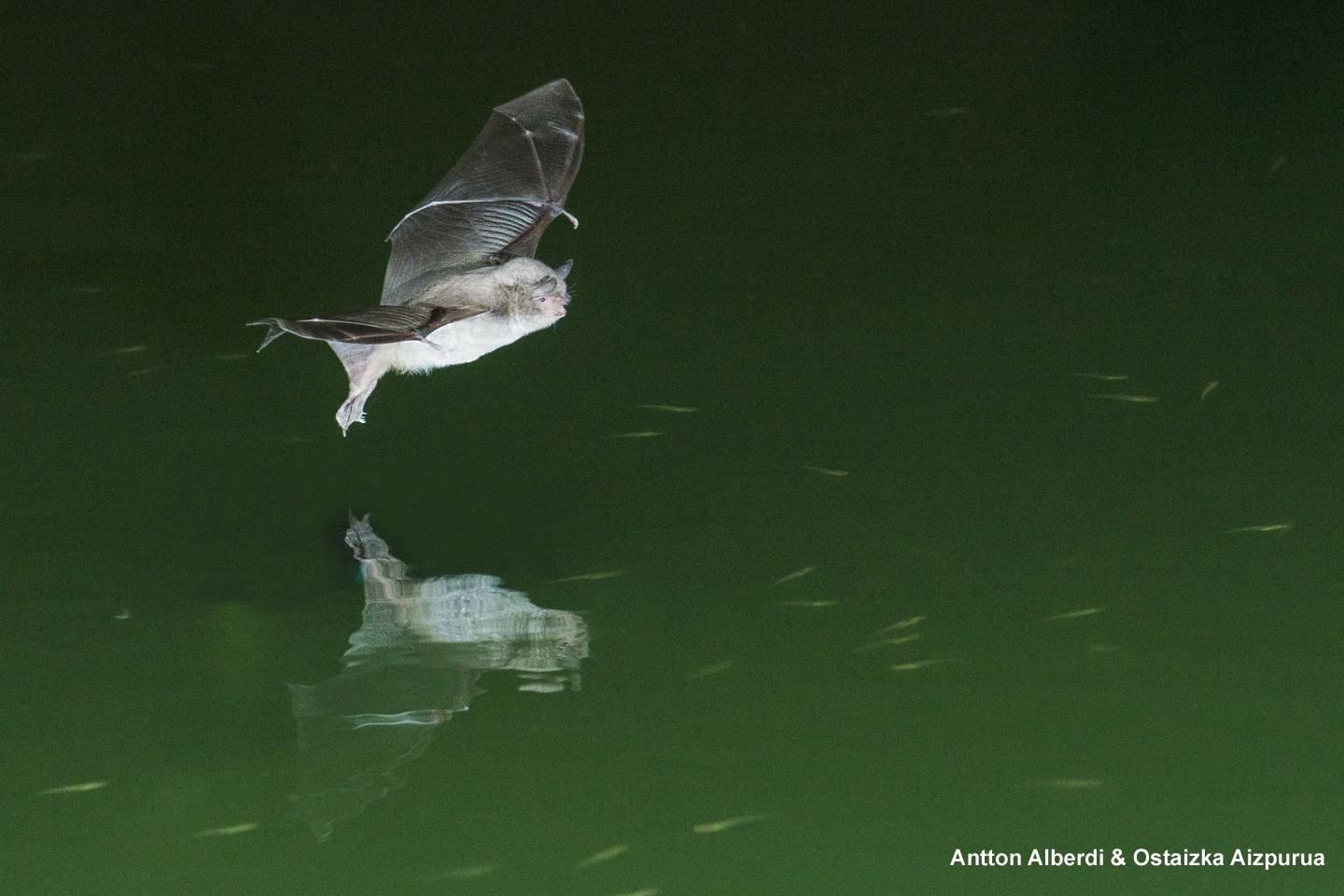
Credit: Antton Alberdi and Ostaizka Aizpurua
While most long-fingered bats eat only insects, they may all be instinctively able to also catch fish, according to a study published December 14, 2016 in the open-access journal PLOS ONE by Ostaizka Aizpurua and colleagues from the University of Copenhagen, Denmark and the University of the Basque Country, Spain.
Many animals adapt their diets when their environment changes and new food sources become available. Long-fingered bats (Myotis capaccinii) are generally thought to consume only insects, but previous studies found some individuals that ate fish.
To investigate the origins of fishing behavior in long-fingered bats, Aizpurua and colleagues conducted a field study in the Valencia, Western Spain, comparing a community of long-fingered bats known to eat fish at a golf course pond near Dénia, with a community of strictly insectivorous bats at a stream pool near Ròtova. The researchers compared the bats' reactions to insect-like (stationary) and fish-like (moving) prey targets between the two communities.
Both fish-eating and insectivorous long-fingered bat communities could attack moving fish-like targets, and made deeper, longer dips when targets were submerged underwater compared to stationary fish-like targets. However, the difference in the two modes of attack was exaggerated in the bats used to eating fish, suggesting that these bats had previously honed their technique to improve their chances of catching a fish.
The researchers' results suggest that the fishing technique developed when fish prey became available came from a primary hunting reaction shared by all long-fingered bats. All individuals seem adapted to be capable of detecting and capturing fish, although under appropriate environmental conditions, they may be able to improve their technique by experience and/or social learning. Further research could explore how long it takes for long-fingered bats to improve their fishing techniques, which may provide new insight into mammalian learning processes.
###
In your coverage please use this URL to provide access to the freely available paper: http://journals.plos.org/plosone/article?id=10.1371/journal.pone.0167164
Citation: Aizpurua O, Alberdi A, Aihartza J, Garin I (2016) Fishing Technique of Long-Fingered Bats Was Developed from a Primary Reaction to Disappearing Target Stimuli. PLoS ONE 11(12): e0167164. doi:10.1371/journal.pone.0167164
Funding: This study was part of the Ministerio de Ciencia e Innovación (MICINN) project CGL2009-12393. The University of The Basque Country (UPV/EHU) (INF09/15) and the Basque Government (IT385-07 and IT301-10) funded this study and provided grant support to O.A. and A.A. (BFI-2009-252, BFI-2010-190, Doktore berriak eta Ikertzaile doktoreak espezializatzeko kontratatzeko laguntzak). The funders had no role in study design, data collection and analysis, decision to publish, or preparation of the manuscript.
Competing Interests: The authors have declared that no competing interests exist.
Media Contact
Tessa Gregory
[email protected]
############
Story Source: Materials provided by Scienmag





